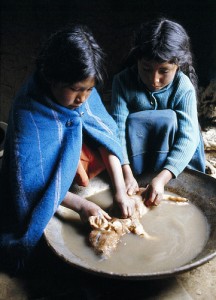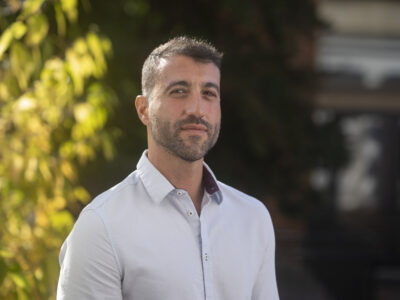Na Bolívia, onde sindicatos são formados com frequência por membros da sociedade, outro grupo de trabalhadores se sindicalizou: crianças [en].
Uma história de trabalho infantil na Bolívia é apresentado por Jean-Friedman Rudovsky como parte da série Ground Shifters: Stories of Women Changing Unseen Worlds [en]. Rudovsky escreve:
Bolivia has 9 million inhabitants; one million are child workers, some who started working as early as seven. Of these, almost half are girls. The girls, like their jobs, are often hidden, inside homes or in the backs of restaurants.
Mauricio Aira, no blog Bolivia Primera Plana [es], argumenta que trabalho infantil não é uma preocupação na sociedade boliviana e acrescenta:
el anonimato en el que viven [los niños trabajadores] simplemente refleja el desprecio que siente el mundo adulto por la niñez en Bolivia.
Hispanically Speaking News já reportou anteriormente:
These children and adolescents work to help the family, to support themselves in their studies, to provide for their personal expenses, to secure themselves a better future compared to their fathers and brothers buried by silicosis and accidents in mines or plantations of sugar cane.
A maioria das crianças trabalhadoras frequenta escolas e equilibra com as demandas de trabalho, alguns chegando a trabalhar em período integral. Eles formaram sindicatos para serem protegidos pelo governo e tratados com respeito pela sociedade. Como escreve Marion Gibney [en]:
these children do not view their situation as a bad one; they want to work, and formed these unions for their own benefit. The unions are meant to grant them protection and basic rights from the government, as well as to gain respect from others in the work force. Being children, they are often picked on and beat up by grown-ups, but they have learned to adapt and protect themselves.
Já que trabalho infantil é ilegal, é difícil cobrar do governo e de outras organizações a proteção da mão-de-obra infantil. Noemi Gutierrez, uma jovem coordenadora do CONNATSOP, o Conselho das Crianças Trabalhadoras Organizadas de Potosí, disse:
“Everyone says that kids shouldn’t work, but they are not taking into account the economic reality in this country. Sure, if we were all well off, none of us would have to work. But rather than thinking rationally, the government only says we need to eradicate child labor. I say, they ought to eradicate poverty first.”
O blog Children's Participation pontua algumas das demandas feitas pela UNATSBO (“Unión de Niños, Niñas, y Adolescentes Trabajadores de Bolivia” em espanhol, ou União de Meninos, Meninas e Adolescentes Trabalhadores da Bolívia), o maior sindicato de crianças trabalhadoras do país:
They want to ensure that children earn the same wages and have the same financial tools as their adult counterparts. In some sectors, they earn less than half the salary of their adult colleagues. Moreover, children don't have access to savings accounts and often give their earnings directly to their parents. Union members also lobby for safe work environments and for better medical care, especially for children whose jobs present a health risk.
The lack of recognition of children who work forms one of the major obstacles in achieving better living conditions for working children
A falta de reconhecimento de crianças que trabalham é um dos maiores obstáculos para alcançar melhores condições de vida para crianças trabalhadoras.






